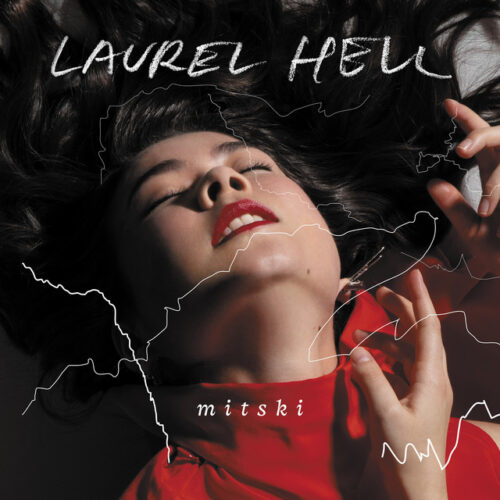Dionte Berry
Editor-in-Chief
dberry11@murraystate.edu
In her sixth studio album, “Laurel Hell,” Japanese-American singer-songwriter Mitski Miyawaki, known professionally as Mitski, expresses a sense of melancholy related to her music career.
“Laurel Hell” marks Mitski’s return from hiatus after her 2018 album, “Be the Cowboy.”
She said in an interview with Apple Music she felt as though she had nothing left to give.
“I think I was just tired, and I felt as though I needed a break and I couldn’t do it anymore,” Mitski said in the interview.
Despite this, she said she did not want to let go of the career she had worked so hard to get. Mitski channels some of those feelings into this album.
“Laurel Hell” continues Mitski’s tradition of having poetic and introspective storytelling lyrics that are almost disguised by bright synthwave influences on some of her tracks.
The 11-track album begins with “Valentine, Texas,” which starts slowly with a growling synth underneath Mitski’s spoken lyrics. Toward the middle an eruption of ‘80s reminiscent synthesizers that fuels a sense of euphoria.
“Valentine, Texas” is portrayed as a place where one would go to disconnect from the rest of the world and escape the daily woes of reality.
“Working for the Knife” is the lead single of “Laurel Hell” and creates a much more entrapped feeling than “Valentine, Texas.” The song starts with a low, wavering synth, repetitive metal-like clanking and tambourine jingle.
The instrumentals feel jarring and overly meticulous, and it distracts from the depth of the lyrics. Mitski describes “working for the knife” as putting too much of yourself into a project and not always getting positive reception.
“Stay Soft” has a groovy touch to it, beginning with a drum and cymbals intro. Mitski addresses how hard it is for people to stay soft, or sensitive, because it is something that can be taken advantage of. It is natural for people to become harder and stray away from being led by their emotions.
“Everyone” addresses Mitski deviating from the norm and the wishes from those around her. Taking the path less traveled can be dark, but Mitski seems to invite the darkness.
The instrumental on this track is bouncy and awkward and does not fuel Mitski’s lyrics. It is enjoyable toward the end when a piano cuts through the synths, which should have happened earlier.
“Heat Lightning” has a dreamy essence supported by Mitski’s vocal layering. The title alludes to Mitski’s insomnia and a resulting feeling of helplessness.
“The Only Heartbreaker” is the most instrumentally bright song on “Laurel Hell.” Mitski sings about wishing to be the “heartbreaker” rather than the one being heartbroken.
The instrumental has a strong ‘80s synthwave focus present throughout the album and creates a cheerful and upbeat feeling, contrary to much of Mitski’s music.
“Love Me More” maintains the same sound, but it erupts during the chorus, which makes for a nice climax. Compared to other songs, this track is not lyrically deep. It focuses on Mitski wanting to feel love from her significant other during times of loneliness.
“There’s Nothing Left for You” starts as a slow synth-backed track with Mitstki’s voice at the forefront.
Guitars burst through at the halfway point, but as fast as it starts, it shuts off like a switch. The song resumes calmly. I wish the guitars revisited the song before it ended.
“Should’ve Been Me” starts with a kooky and cheerful sound. Although it may feel corny, I like the instrumental upkick. Mitski’s lyrics still have a bitter edge as she apologizes for not staying with a person when she sees them with someone who looks like her.
“I Guess” brings Mitski’s voice to the forefront over a much simpler instrumental in comparison to the last track. Mitski sings about not being sure if her relationship is at its end.
“That’s Our Lamp” starts with a bouncing beat, and in it, Mitski tells the story of a fight she had with a significant other. Overall, the bright sound creates a sweet and colorful finale for “Laurel Hell.”
The 11-track album shows a clear musical change for Mitski, who began with a very stripped down and traditional instrumental sound. It is nice to see her experimenting with more complex instrumentation.
However, the downside of an artist like Mitski having more complex instrumentals is the attention taken away from her lyricism. This is what happens on songs like “Working for the Knife.”
The stand-out track for me is “Valentine, Texas.” I love the threads of dreaminess that flow through this track while it maintains focus on Mitski’s lyrics.
For her experimentalism and intricate lyricism, “Laurel Hell” gets a seven out of 10. For those new to Mitski, be sure to take a look at her older works and see how she has led up to this point in her career.




























































































